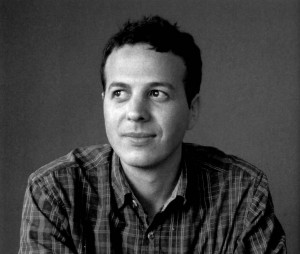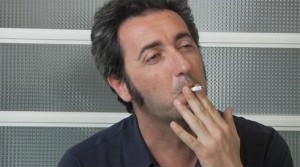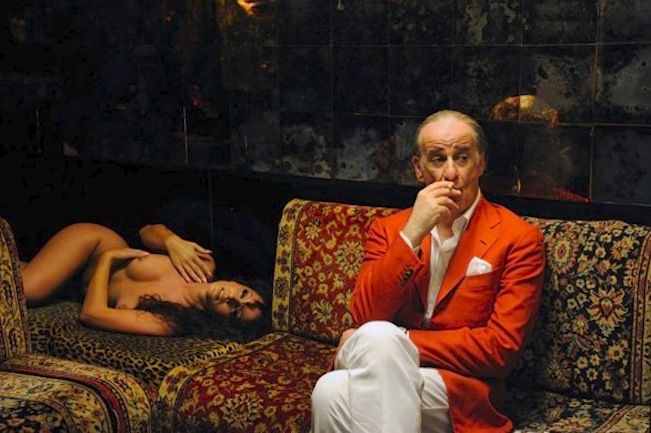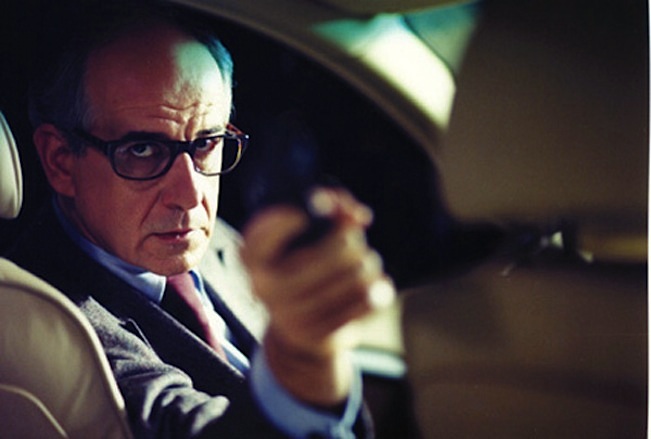The songs, the laughs, the emotions, the cat—it’s easy to summarize the newest film from Joel and Ethan Coen, Inside Llewyn Davis, but the picture’s many layers cement it as something so much more. The take-home message: this is a superb film; easily the finest to debut at Cannes thus far. Going further down the line, it’s also a Coen brothers best, sure to upend fans’ established list of favorites.
Based loosely on the Dave Van Ronk memoir “The Mayor of MacDougal Street,” the story dramatizes the New York City folk scene in winter 1961, following the off-kilter Odyssey of singer Llewyn Davis (Oscar Isaac). The frosted, muted backdrops are captured by cinematographer Bruno Delbonnel (“Amélie,” “Dark Shadows”), who steeps the film in faded bloom. It’s a gorgeous, misty visualization sure to instill nostalgia for those too young to have haunted locales like the Caffe Reggio or the Gaslight Café. As for Oscar Isaac’s performance, it’s hard not to simply babble superlatives.

Similar to Van Ronk, Llewyn Davis is the also-ran of folk music: he’s the bridesmaid, never the bride; the talented-but-unsuccessful minstrel just trying to catch a break. In his world is Jean (Carey Mulligan, a brief, wonderful role that reveals a comedic prowess), his now-bitter romantic interlude from the past, while Justin Timberlake plays Jim, Jean’s husband and singing partner. Just two of the many supporting roles to later dissect, Jim and Jean play a larger role in Llewyn’s trajectory: Jean is pregnant (and we’re not sure who’s the father), while Jim invites Llewyn to sing on a new track, the immensely enjoyable “Please Mr. Kennedy” (but as he opts for cash-in-hand, Llewyn won’t be getting royalties if it’s a novelty hit).
Rather than dwell on these wrinkles—these caveated boons—the Coens only touch upon them; including them to draw a larger picture of Llewyn Davis without forcing sympathy from the audience. As it stands, it’s abundantly clear Llewyn is unable to play the long game in any capacity, living always in the here-and-now. His plight is one that we care about, but the Coens’ grounded treatment of things reminds us that Davis is partly the author of his own misfortune. As Jean says to Llewyn, “Everything you touch turns to shit. You’re like King Midas’ idiot brother.”
Living paycheck to paycheck and couch-surfing every night, Davis wakes up one morning with his host’s ginger cat in his face, a playful little guy who follows him out the (now-locked) door. Despite some of his shaggier exploits, deep down Llewyn is a decent guy and certainly not one to abandon a cat outside of its apartment. He takes the cat with him, unable to immediately get him back to its owners. Named “Ulysses,” the cat leads our drifting singer through snowy New York, later tagging along for an impromptu jaunt to Chicago.
If the success of YouTube is any proof, cats are a winning addition to most anything—but Ulysses is a special animal, his name a nod to both Homer and O Brother, Where Art Thou? He’s the perfect catalyst (sorry) for a movie like Inside Llewyn Davis to begin, as the animal shares a lot in common with our protagonist, hardly anything tethering them to a single spot in the world. To be sure, Ulysses steals the show—but he also remains one of the only sincere connections Llewyn has. When their paths eventually diverge, the Coens leave us with a tender moment of subtle genius.
The film’s road trip between New York and Chicago is an engaging and out-of-the-way loop, but it resembles the way Llewyn traverses life through cycles. The trip is focused on Llewyn playing for music producer Bud Grossman (F. Murray Abraham), who may be the figurative golden ticket for him to escape the spiral of casual gigging. Sadly, Grossman’s not buying: “I don’t see a lot of money in this,” he says after Llewyn delivers one of his finest folk tunes.
That’s a line sure to leap to the top of all-time Coen quips, but Grossman’s conclusion ties into the film’s historical relevance, because we know Bob Dylan blew the doors open for folk music. The Coens make sure to capitalize: the stunning final scene exists as their interpretation on that fabled winter’s night, when a reporter from The New York Times went to a show at the Gaslight Café. Who will be mentioned in the eventual write-up? Given the reality of who emerged from the folk scene still intact, it’s a scene destined to be played back over and over again by those who wish to crawl inside the screen and never leave its fleeting glory.
Finally, the songs: a film about music better make sure the aural experience works, but worry not: peppered throughout this journey are folk classics arranged by musician-producer T-Bone Burnett, winner of the 2010 Best Original Song Oscar for Crazy Heart’s “The Weary Kind.” Inside Llewyn Davis’ finest quality is the authenticity of the music; it flows from the mouth and fingers of Oscar Isaac without any noticeable enhancement or movie magic, his fellow cast-members (Justin Timberlake, Adam Driver, Carey Mulligan) playing beside him with equally harmonious skill.


















































